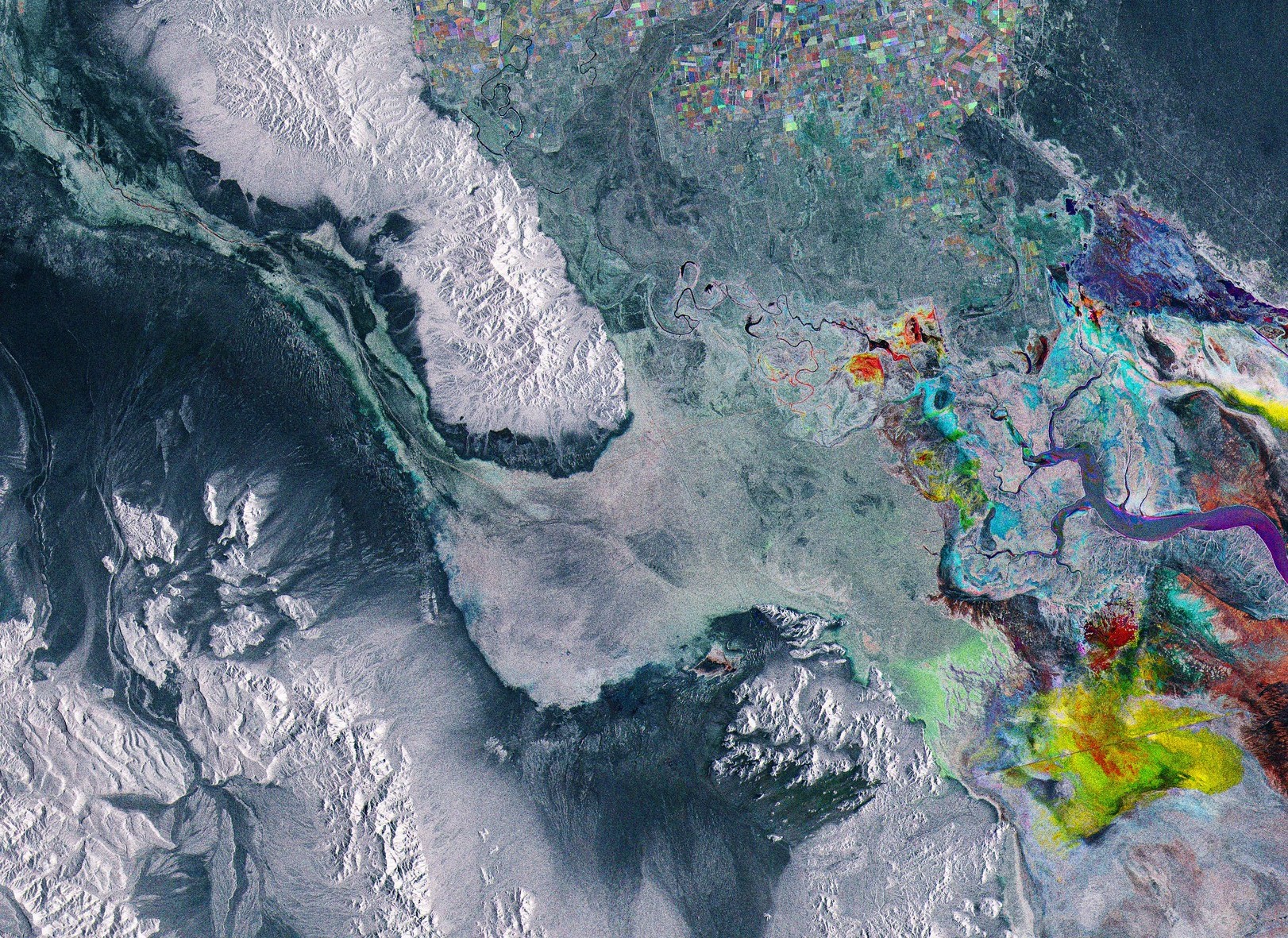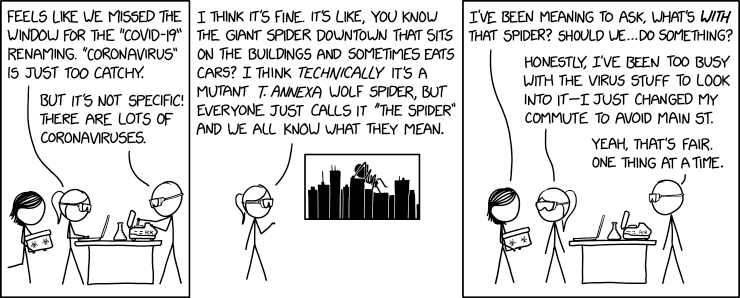Don’t be salty: Operating the Suisun Marsh tidal gates to benefit Delta smelt: “As delta smelt (Hypomesus transpacificus) continue to decline throughout the Sacramento-San Joaquin Delta, with recent population estimates numbering in the low thousands, novel approaches are being implemented to open up additional habitat for these imperiled fish. While many proposed conservation actions focus on habitat restoration, others focus on various environmental conditions preferred by delta smelt. As recommended in the California Natural Resource Agency’s Delta Smelt Resiliency Strategy (CNRA 2016), the Department of Water Resources, in collaboration with other stakeholders, has been conducting a pilot research study to investigate how operational changes at the Suisun Marsh Salinity Control Gates affect delta smelt habitat conditions. ... ” Read more from FishBio here: Don’t be salty: Operating the Suisun Marsh tidal gates to benefit Delta smelt
Can carbon credits save Sacramento-San Joaquin Delta islands and protect California’s vital water hub? “The islands of the western Sacramento-San Joaquin Delta release tons of carbon dioxide — a greenhouse gas — into the atmosphere as the rich peat soil that attracted generations of farmers dries out and decays. An ambitious plan now in the works could halt the decay, sequester the carbon and — just as important — help protect California’s vital water conveyance system by offering farmers and landowners an incentive to change how they use their land.” Continue reading from Western Water here: Can carbon credits save Sacramento-San Joaquin Delta islands and protect California’s vital water hub?
It’s a Dry Heat: What happens in an always warm world when it doesn’t rain for an unusual amount of time? “California’s 2013-2016 drought has been blamed for the death of 147 million trees in the Sierra Nevada. Three years of far-below-average rainfall changed ecosystems, drained groundwater, and left the state desiccated and primed for major wildfires. It was an extreme drought, and it might not have ended yet. A dry February 2020, in which San Francisco will not record any rain for the first time since 1864, raises the possibility that perhaps the last two rainy winters were just brief interruptions in a dry spell that might have to more properly be measured in decades, not years. “From the paleoclimate perspective, megadrought was common,” said Shelley Crausbay, a senior scientist at the ecological consulting firm Conservation Science Partners. “We may be in a megadrought now in California. But it’s too much of a new paradigm to say that out loud.” … ” Read more from Bay Nature here: It’s a Dry Heat: What happens in an always warm world when it doesn’t rain for an unusual amount of time?
West coast Dungeness crab stable or increasing even with intensive harvest, research shows: “The West Coast Dungeness crab fishery doesn’t just support the most valuable annual harvest of seafood on the West Coast. It’s a fishery that just keeps on giving. Fishermen from California to Washington caught almost all the available legal-size male Dungeness crab each year in the last few decades. However, the crab population has either remained stable or continued to increase, according to the first thorough population estimate of the West Coast Dungeness stocks. ... ” Read more from NOAA here: West coast Dungeness crab stable or increasing even with intensive harvest, research shows
Think flash floods are bad? Buckle up for flash droughts: “In late spring of 2012, climactic chaos descended upon the Midwest and Great Plains in the midst of the growing season. A drought is supposed to unfold on a timeline of seasons to years, but in the two weeks between June 12 and 26, the High Plains went from what a monitoring group called “abnormally dry” to “severe drought.” The affected area ballooned from covering 30 percent of the continental US in May to over 60 percent by August, with the agricultural losses tallying in the tens of billions of dollars. … ” Read more from WIRED Magazine here: Think flash floods are bad? Buckle up for flash droughts
Fallowing cattle-feed farmland simplest way to alleviate western U.S. water shortage: “All over the world, the rate at which humans consume fresh water is now approaching or surpassing the rate at which water sources are being naturally replenished, creating water shortages for people and ecosystems. In the western US, water shortages are becoming more frequent and more severe, and are putting many species of fish inhabiting western rivers at risk — but the scarcity of water is also risking the growth of cities in the region like Los Angeles and Phoenix. An important new study published this week in Nature Sustainability finds that irrigated crop production accounts for 86 percent of all water consumed in the western US — and of all the water used on western farms, by far the largest portion goes to cattle-feed crops such as alfalfa and grass hay. To alleviate the severe shortage of water in the region — especially in the Colorado River basin — the study’s authors suggest that rotational fallowing farmland, leaving the land uncultivated for a period of time, could be a simple and affordable means of dramatically reducing water use in the region. … ” Read more from Science Daily here: Fallowing cattle-feed farmland simplest way to alleviate western U.S. water shortage
New research shows healthy agriculture means healthier birds: “What consequences could an action have for biodiversity and its cascading impacts on human wellbeing? What if we could determine that outcome before it occurs? These are precisely the questions that a subfield of conservation biology – conservation physiology – seek to answer. Because environmental changes affect organisms at multiple levels, and species often exhibit markedly different vulnerabilities to these changes, scientists are increasingly turning to animal physiology for insights into how species might respond to ecological uncertainty. ... ” Read more from Cool Green Science here: New research shows healthy agriculture means healthier birds
Re-thinking ‘tipping points’ in ecosystems and beyond: “When a grassland becomes a desert, or a clearwater lake shifts to turbid, the consequences can be devastating for the species that inhabit them. These abrupt environmental changes, known as regime shifts, are the subject of new research in Nature Ecology & Evolution which shows how small environmental changes trigger slow evolutionary processes that eventually precipitate collapse. Until now, research into regime shifts has focused on critical environmental thresholds, or “tipping points,” in external conditions — eg when crossing a certain temperature threshold triggers a sudden shift to desertification. But the new model by Catalina Chaparro-Pedraza and Santa Fe Institute External Professor André de Roos, both at the University of Amsterdam, reveals how a small change in the external environment, with little immediate impact, can induce slow evolutionary changes in the species that inhabit the system. … ” Read more from Science Daily here: Re-thinking ‘tipping points’ in ecosystems and beyond
The ocean’s swirling currents are migrating poleward: “Enormous, swirling gyres compose some of the world’s biggest and most important ocean currents. Found in the North and South Pacific, the North and South Atlantic, and the Indian Ocean, these massive, rotating currents help transport heat and nutrients around the globe. Now, new research suggests, they seem to be on the move. A recent study, conducted by scientists from the Alfred Wegener Institute in Germany and the Ocean University of China, finds major ocean gyres are steadily creeping toward the poles. Since the 1980s, they’ve been migrating by about a half mile each year. … ” Read more from Scientific American here: The ocean’s swirling currents are migrating poleward
Featured image credit: Baja California, Mexico by the European Space Agency via flickr
About Science News and Reports: This weekly feature, posted every Thursday, is a collection of the latest scientific research and reports with a focus on relevant issues to the Delta and to California water, although other issues such as climate change are sometimes included. Do you have an item to be included here? Submissions of relevant research and other materials is welcome. Email Maven




